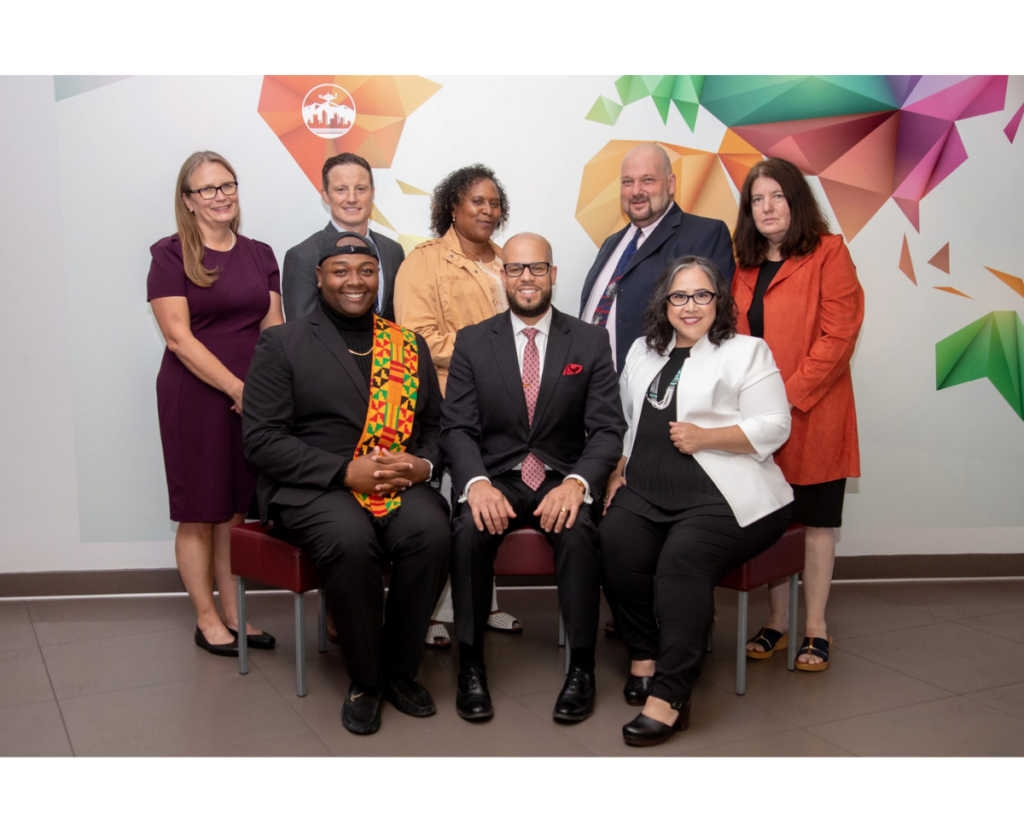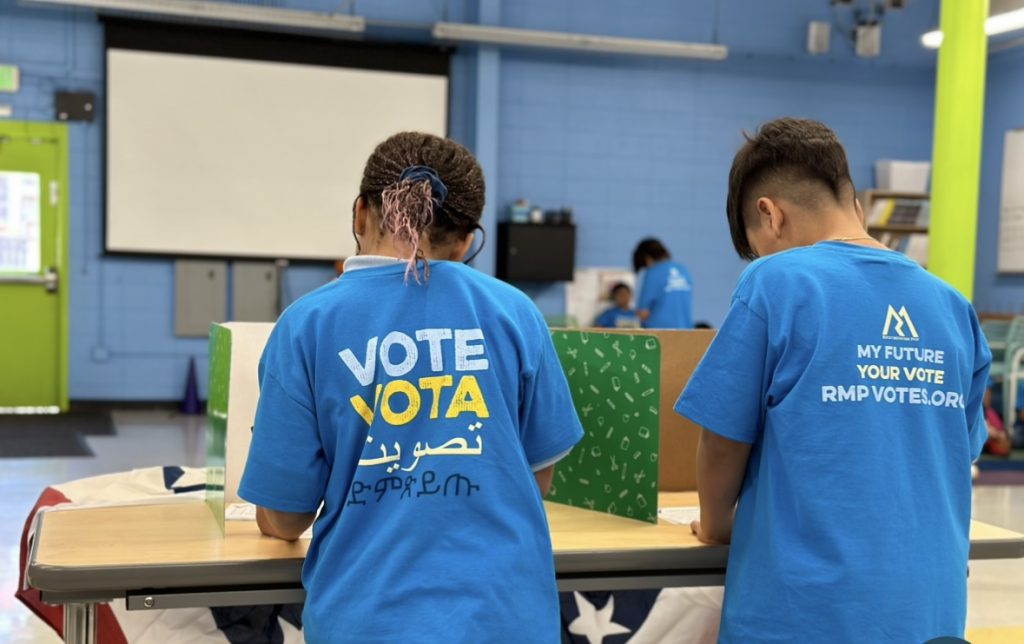Overseeing a sprawling district with more than 10,000 employees and nearly 90,000 students attending more than 200 schools, the Denver Board of Education is no stranger to controversy.
Whether the issue is school safety or closing schools, the seven-member elected board is a cauldron of community debate as the governing body of Denver Public Schools.
“In Denver, from about 2008 to 2017, it was a reform-oriented school board, creating new charters, innovation zones, even some experimentation with teacher pay and performance bonuses,” recalls Paul Teske, dean of the School of Public Affairs at University of Colorado-Denver and DPS parent who closely follows school governance.
“In 2019, voters elected three union-backed members. Then in 2021, after the chaos of COVID, the politics changed and the board flipped to 7-0, and they have been rolling back some of the reforms since … And unfortunately, board members don’t get along well with each other,” which he said tends to distract the board from focusing on student achievement and core education issues.
The Board of Education is responsible for strategic planning, student achievement, developing school policies from school choice to student discipline, budget oversight (current annual budget is $1.28 billion), conducting student and employee appeals and adopting the school calendar. The board also hires and fires superintendents. The current board hired Alex Marrero as superintendent in 2021 and five months later, with three newly elected members supporting the move, extended his contract through 2026.
School board profiles and upcoming election
Board members are elected to nonpartisan four-year terms that are staggered in odd-numbered years. They are no longer unpaid volunteers — a new state law has enabled them to be paid up to $9,000 a year depending on when they were elected. A recent effort by board members to raise their annual pay up to $33,000 was tabled by the board earlier this spring.
Five board members represent separate geographic areas, and two represent the city at large.
Three board seats are up for election on Nov. 7; the other four seats are not up until November 2025. Unlike the mayoral and city council races, there is no runoff in school board elections.
The three board members whose seats go to voters Nov. 7 are:
- Auon’tai Anderson is an at-large member and current board vice president elected in 2019. ,
- Scott Baldermann represents District 1 and was elected in 2019.
- Charmaine Lindsay represents District 5 and was appointed to fill a vacancy in 2022. She said when she was appointed that she won’t seek another term.
The four members whose seats go to voters in November 2025 are:
- Scott Esserman is an at-large member elected in 2021.
- Xóchitl Gaytán represents District 2, is current board president and was elected in 2021.
- Carrie Olson represents District 3 and was elected in 2017 and re-elected in 2021.
- Michelle Quattlebaum represents District 4 and was elected in 2021.
Here are short biographies of current school board members.
The Denver Elections Division deadline to file to run in the Nov. 7 school board election is Sept. 1. Candidates must be at least age 18 and a registered voter in the school district for 12 consecutive months before the election, and reside in the relevant district to be represented (except for at-large seats). Candidates must submit a nomination petition signed by at least 50 eligible voters to qualify for the ballot, and they must comply with campaign finance regulations and disclosures required by the Colorado Secretary of State.
Boundary changes debated for board districts
The maps of the five city board districts are under review by the school board, which is required to adjust boundaries after the 2020 census to better equalize the number of students and families in each district. For instance, District 4 in Northeast Denver has grown to be much larger than District 2 in Southwest Denver. The board has been debating whether to make changes prior to the Nov. 7 election. Several redistricting maps have been proposed, but no agreement is imminent.
The current board districts are:
- District 1 in Southeast Denver includes schools in the attendance areas of South and Thomas Jefferson high schools.
- District 2 in Southwest Denver includes schools in the attendance areas of West, Lincoln and Kennedy high schools.
- District 3 in East Denver includes schools in the attendance areas of George Washington HS and part of East High School.
- District 4 in Northeast Denver includes schools in the attendance areas of Northfield HS, part of East HS, Montbello HS, Dr. Martin Luther King Jr Early College, Northeast Early College, DSST Green Valley Ranch, among others.
- District 5 in Northwest Denver includes schools in the attendance areas of North and Manual high schools.
Resignations and recalls
After two student-involved shootings in and near East High School in February and March, a group of parents and activists circulated a petition demanding that all seven school board members resign, accusing them of not doing enough to improve school safety. Board members, however, have made clear that they won’t quit.
Anderson has announced he is running for re-election. Kwame Spearman, former CEO of Tattered Cover bookstore, is running against Anderson, and other candidates may emerge prior to the September deadline. Baldermann has not yet announced whether he will seek re-election. District 5 seat looks to be an open seat unless Lindsay changes her mind and seeks another term. Adam Slutzker, a former teacher, has announced he is seeking that seat, and others are expected.
Meanwhile, the debate over school safety continues. The board will vote this summer on a new districtwide safety plan being developed by Marrero for the 2023-24 school year.
Some other community members have called for a recall, which is a complicated process in Denver. Petitions cannot be filed less than one year prior to a regular election, which means none of the tree board seats up for election Nov. 7 would be affected.
In addition, to get a candidate’s recall on the ballot, a petition requires valid signatures of voters who number at least 25% of the total votes cast for that office in the election in which that board member was elected. That would mean it would take more than 34,000 valid signatures to get Esserman (at-large) into a recall election, nearly 8,000 signatures for Olson (District 3), 6,300 signatures for Quattlebaum (District 4) and 4,300 (District 2) for Gaytán.
Board meetings and executive sessions
The board holds regular 4:30 p.m. meetings on the third Thursday of each month at the board room at the DPS central office at 1860 Lincoln St. Meetings are live streamed, but those who wish to speak to the board must do so in person during the public comment period held on Mondays prior to Thursday meetings. Speakers have up to three minutes to address the board and must sign up in advance. Go here for more information.
Work sessions are held on the first Thursday of each month for board discussion, but no voting can take place until regular meetings.
Under state law, the board is allowed to convene closed meetings, called executive sessions, as long as the topics involve personnel, real estate, security or legal matters. No votes can be taken during executive session, and general board policies or topics not specified under the law cannot be discussed.
The distinction is significant because the board currently is being sued by several media organizations that allege board members violated state law by holding a five-hour closed session after the March East High School shootings, in which the board discussed school safety and then emerged to vote to return Denver Police officers to high schools. The suit is pending in Denver District Court.
CU-Denver’s Paul Teske expects all the public attention on DPS likely will propel a bigger turnout in the Nov. 7 school board election than the last one in 2021, when 30% of Denver voters cast ballots. Besides the East High parent activist group and families impacted by upcoming school closures, he expects backers of previous reforms see an opportunity to back challengers:
“There’s no question that upcoming school board election will be very contentious.”




